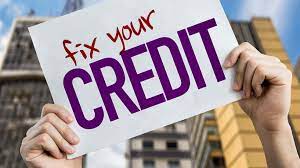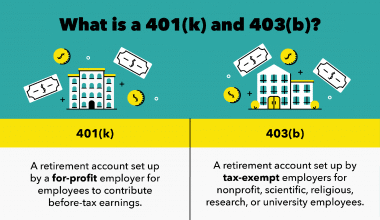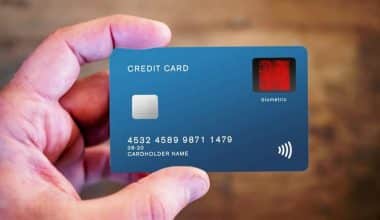Do you ever find yourself wondering if it’s feasible to fix a low credit score? Fortunately, it is possible. What’s the bad news? Much effort and persistence would be needed. Can you pay to have your credit fixed? When your credit is in bad shape, there are a number of potential causes. Fixing your credit might be as easy as contesting inaccurate information with the three major credit bureaus. When your identity is stolen, the damage could be so severe that it takes a long time to fix your credit. The state of your credit cannot be fixed overnight. Negative information (such as late payments, charge-offs, or collection accounts) that appears to be accurate will stay on your credit report for a long. There are, however, things you can do to begin establishing a more favorable credit history and, eventually, fix your credit ratings for free.
What is a Bad Credit Score?
A bad credit score is defined as anything at or below 600. Even if you do manage to get a loan with poor credit, the terms and interest rates may not be in your favor. A credit score between 601 and 669 is regarded to be in the “fair” range.
Oftentimes, to fix a credit score is a more challenging endeavor than establishing it first. You’re making this case to banks and credit card companies to reassure them that you can and will continue to make your payments on time, despite having made mistakes in the past or experiencing unforeseen hardships. Things can, however, be fixed straight quickly. As soon as you start building up positive credit information to offset the major negatives, your score should begin to rise. As time passes and your credit score improves, you’ll be able to explore additional credit opportunities and choices. Here we’ll show you below, there are things you can do to fix your credit.
#1. Find Out Your Credit Rating And Report
There is information about your credit history from the past decade in your credit report. The three major credit reporting agencies (Equifax, Experian, and TransUnion) each keep a separate record of your credit history. You should review all three reports because most creditors report to all three, but others don’t. AnnualCreditReport.com offers free credit reports every week until April 20, 2022.
Checking your credit report is very significant because it is used to determine your credit score. Several credit card issuers and credit score websites allow you to view your credit score for free. A soft credit query, such as the one you’d use to check your own score, doesn’t affect your score in any way. Once a month is a minimum interval between checks.
#2. Always Pay Your Bills On Time
The percentage of your credit score due to your payment history is 35 percent. Hence, smoothing out your monthly payments is a priority if you want to repair your credit. The process of making timely payments on multiple bills can seem daunting, but there is a simple solution: autopay.
Some bills, including one-time medical expenditures, may not be eligible for autopay, so it’s important to take care of those as soon as possible. Make alternative payment arrangements with the office if you are unable to pay the whole amount right away. To avoid this embarrassing situation, plan your expenses ahead of time and set up automatic payments to go out when you get paid.
#3. Cancel Out Further Loans
Paying off debts will help you build a better payment history and lower your credit usage ratio.
For substantial sums of debt, such as credit card balances, the debt avalanche or debt snowball method might be helpful. While the snowball strategy involves paying off the smaller balances first, the debt avalanche strategy prioritizes paying off the highest-interest debts first. Compare the two options to find the one that works best for you.
It’s crucial to remember that your credit score may take a brief hit if you intend to repay loan debt. Although this may lower your score temporarily, Experian says it will raise it over time.
#4. Correct or Contest Inaccuracies
Credit reporting agencies aren’t perfect and can make mistakes occasionally. Twenty-five percent of respondents, according to one FTC survey, had mistakes on their credit reports, and among them, five percent had mistakes that may have made it more expensive to borrow money.
While it’s important to be familiar with your credit report and score, checking them for mistakes should be a top priority. If you find any mistakes, filing a dispute to have them erased is a quick and easy process to fix your credit.
#5. Avoid Exceeding a 30% Debt-To-Credit Ratio
The proportion of your credit card debt that you are really using is known as your credit usage ratio. Lenders will look at this percentage to gauge how well you handle your money. We recommend aiming for a ratio of less than 30% and greater than 0%.
Consider a fictional scenario in which you owe $500 on one of two credit cards with a total maximum of $2,000. A 12.5% ratio of used credit is what you have. Your current balance ($500) should be subtracted from your maximum available credit ($4,000).
What is Considered a Good Credit Score?
Generally speaking, a credit score between 690 and 719 on the typical 300 to 850 scale is considered to be good. Excellent results are shown by scores of 720 or more, while satisfactory results are indicated by scores in the 630-689 range. If your score is lower than 630, your credit is considered poor.
The most popular credit scoring system, FICO, and its rival, VantageScore, both employ a range of 300 to 850.
The benefits of having a good credit score
A person’s credit score determines their capacity to borrow money and their interest rate.
If you have a good credit score, you may be eligible for the following:
- A low-interest balance transfer credit card or an unsecured card with a good rate.
- An enticing automobile financing option.
- A home loan with an attractive rate of interest.
- If one does not have an emergency savings or it runs out, the choice is to get more credit.
One additional benefit of having a good credit score is the lower cost of auto insurance in many areas. Furthermore, some property owners check tenants’ credit reports. It’s beneficial to have a high credit score regardless of whether or not you plan to use credit in the near future.
Can You Pay to Have Your Credit Fixed?
Yes. If you notice bad information on your credit report, credit repair agencies may challenge it for you. Most credit repair companies charge a monthly fee or a specific sum for each bad item they remove. Experian does not require a specific form or charge clients who contest erroneous information.
Monthly subscriptions cost about $75, however, this varies widely from business to business. The same holds true for the option of paying a fee for each deletion, which often costs $50 or more.
But, it’s crucial to remember that credit restoration isn’t a silver bullet and that it sometimes involves questionable tactics like attempting to have credit bureaus remove information that has been accurately recorded. Even if these organizations fight every erroneous item on your credit reports, they probably can’t change your lenders’ information.
There is nothing that credit repair agencies can do for you that you can’t do for yourself for free. Hence, before shelling out money to a credit repair business, it’s wise to give yourself a chance to fix your credit on your own for free.
Can Credit Karma Help You Fix Your Credit?
Although Credit Karma does not fix inaccuracies on your credit reports, the Direct DisputeTM tool on Credit Karma can guide you through the process of challenging an error on your TransUnion credit report.
Errors on your credit report can be contested directly through Credit Karma. If there is an issue with your Equifax credit report, you must submit a dispute request directly to Equifax; however, they can assist you with this process as well. Also, read CREDIT KARMA: Review, How Does Credit Karma Earn(+All You Need to Know).
Is It Worth Paying Someone to Fix Your Credit?
Getting a high credit score is crucial. Without it, you may have trouble securing things like a job, a rental, or even insurance at reasonable rates. Consider employing a credit restoration service if you need to “clean up” your credit report due to a negative financial history or inaccuracies. But before you hand over any cash, be sure you understand how these establishments work. Spending money on a third-party firm is usually a waste of time and money.
Avoid using a credit repair company if you want the most control and benefit from the process. To sum up, credit repair clinics can’t legally delete accurate and timely negative information from your report, and you may perform the same things yourself for free or close to it.
Who Is the Best to Fix Your Credit?
It’s not as uncommon as you might believe for there to be errors on your credit report. Also, you can fix errors on your credit report by yourself, but doing so is frequently a frustrating and time-consuming procedure.
If you hire a credit repair company, they will handle requesting your credit reports, checking them for errors, and disputing any discrepancies with your creditors and the three major credit bureaus on your behalf. Here are the top three companies to fix your credit:
#1. Lexington Law
In addition to being a law practice, Lexington Law also operates as a dependable credit repair service. Millions of people have used it to fix their credit scores by disputing and removing erroneous negative information from their credit reports. Since 2004, the credit repair and identity protection company has nearly two decades of experience.
If there are any mistakes or inaccuracies on your credit record, Lexington Legal can use its connections to the three major credit bureaus to help get them removed. Fixing these inaccurate entries might have a significant positive impact on your credit score.
The corporation employs a number of methods, including official disputes and cease-and-desist letters, to correct inaccurate information. It’s true that credit repair can help improve your score, but it can only fix errors or omissions, not everything else that’s hurting it. You require exact and complete reporting for a complete credit history, which no professional credit restoration firm would undertake.
#2. CreditRepair.com
CreditRepair.com is a website dedicated to helping consumers improve and maintain their credit scores through the use of various payment plans. Despite being a newcomer to the business, the company has already submitted over 23 million complaints.
There are three phases in CreditRepair.com’s process for fixing credit: checking, disputing, and modifying.
In order to assess if you are a good candidate for the company’s services, the initial stage involves a credit check through all three major credit bureaus. The challenge procedure is initiated after the organization discovers potentially misleading or erroneous entries. In this stage, you will file a disagreement with each of the three authorities and monitor its progression. The company’s credit repair experts know the credit industry and will use the laws and regulations to their advantage.
Lastly, you’ll want to maintain track of challenges and check in with the credit bureaus to make sure they’ve removed any inaccurate information. In a matter of weeks, you should observe the good effects of CreditRepair.com monitoring your credit history.
#3. SafePort Law
Safeport Law is a credit restoration service that uses an innovative method to raise clients’ FICO ratings. Attorneys and consumer activists with extensive expertise and knowledge of credit reporting law make up the company’s core staff. Any errors or mistakes on your credit report can be contested by using the services provided by this business.
Safeport Law’s credit restoration service begins with a no-cost initial consultation. Discover if credit restoration is right for you and how the lawyers can assist you.
If you choose Safeport Legal, your attorney will request certain information and acquire your credit report for free.
The next thing you can do is have Safeport Law check your credit report for errors. An account you’ve closed might still show up as open on your report. There is a chance that your report will also display a number of accounts with slightly different spellings.
If incorrect items are discovered, your attorney will dispute them with the lender or credit reporting agency. Afterward, you’ll receive individualized recommendations for improving your credit report and score.
Safeport Law offers a simple credit repair plan, while most competitors offer three or four tiers at different prices.
How Can I Raise My Credit Score 100 Points in 30 Days?
It’s natural to worry that a single misstep would permanently damage your credit. However, there are steps you can do during the month to potentially boost your credit score as lenders report your payment activity to the major credit agencies and your score is updated.
Positive activity may not appear on your account for up to 30 days after it occurs, while negative information may take that long to sink in. If your credit score isn’t quite where it should be, either because you’ve been carrying a lot of debt from month to month or because you haven’t had much time to build a credit history, then following these tips could help you improve your situation more quickly.
#1. Examine Your Credit Report Carefully for Inaccuracies
Verifying the accuracy of your credit report is the first and crucial step in improving your credit score. You should review your credit report at least twice a year using a service like Credit Karma. Alternately, AnnualCreditReport.com allows you to get a free credit report once a year from each of the three major credit agencies (TransUnion, Equifax, and Experian).
Investigating potential credit report errors and taking action to have erroneous or unverifiable material removed could result in a significant improvement to your score. If you have the same debt recorded twice, for instance, eliminating the duplicate information could lessen the total amount of debt reported on your credit report, which could increase your score. Since credit use accounts for 20-30% of most credit scores, this can have a significant impact.
Pay close attention to your report. Keep an eye out for incorrect information, charges that aren’t yours, and old debt that should have been eliminated. You should contact the credit reporting agency if you discover an inaccuracy. There are three credit reporting agencies (Equifax, Experian, and TransUnion) that you can contact if you believe there is an error on your credit report.
#2. The Use of Credit Karma
It’s a popular misconception that monitoring your credit report will cause your score to drop. One of the greatest ways to monitor your credit health and identify the elements influencing your score is to check your score. If you need to borrow money, such as for a new credit card or a personal loan, knowing your credit score is essential so you know how likely you are to be accepted.
Credit Karma provides its users with free access to their credit scores, reports, and monitoring, all of which can be used to better manage their credit. There is no negative impact on your credit from checking your score on Credit Karma, which displays scores from both TransUnion and Equifax.
#3. Make Responsible Use of Credit Cards
Credit cards, if used sensibly, can be a fantastic instrument for establishing credit, in addition to providing opportunities for cash back and travel benefits. Taking responsibility is emphasized. It’s important to remember that using a credit card can either help or hurt your credit score.
Yet, using a credit card and paying it off in whole and on time each month can help people of all credit standings move closer to the ideal of having no debt and a high credit score.
#4. Repaying a Loan or Credit Card Will Help
The ratio of your total credit card balances to the total amount of available credit has a role as well. The ratio between your available credit and the amount you’ve used might tell you whether or not your credit is reaching its limit.
Several contending explanations exist for the variety of approaches to credit card debt. Experts disagree on which credit card should be paid off first: those who advocate the “snowball method” of paying off balances from lowest to highest recommend doing so, while those who advocate paying off the card with the highest interest rate recommend doing so (this is called the avalanche method).
If you want to improve your credit score, one strategy is to pay down the balance on the credit card that is closest to being maxed out. Reducing the percentage of your available credit that you are using could improve your credit score and make the credit card issuer more likely to offer you a credit line increase, which leads us to our next piece of advice.
Conclusion
You shouldn’t let your low credit score bring you down. Today and in the future, you can take measures that will have a direct impact on your score and help you maintain a good one. One of the most significant continuous strategies to fix your credit is being aware of and not avoiding the current state of one’s credit. Additionally, by making use of a free online service like Experian’s to monitor and fix your credit report and score, you can take charge of your financial future and feel confident about your decision-making.
FAQs
Do credit repair services work?
There is nothing that credit repair companies can do for you that you couldn’t do yourself. The FTC issues a warning that many credit restoration organizations are fraudulent and may lead to loan application fraud.
Where can I find help managing my debt?
The National Foundation for Credit Counseling is a nonprofit network of credit counseling agencies. Members can work with their consumers to develop a specific debt management strategy, including setting up manageable monthly payments.
What is a good credit score to buy a house?
A perfect credit score is not required to receive a mortgage loan. A credit score in the 500s is not rare. Yet, lenders reward higher scores with lower credit rates since they estimate your likelihood of default.
Similar Articles
- LEGITIMATE CREDIT REPAIR COMPANIES 2023
- TOP CREDIT REPAIR COMPANIES IN 2023
- REQUIREMENTS TO BUY A HOUSE: A Step-By-Step Guide
- Credit Karma Review: Risks, Accuracy, And All You Need To Know.






